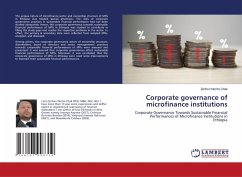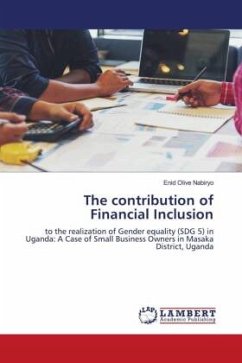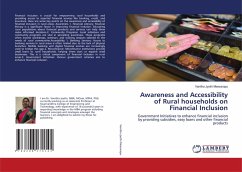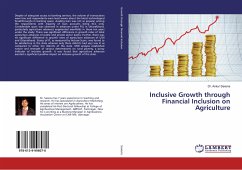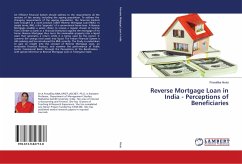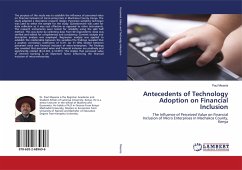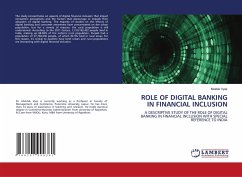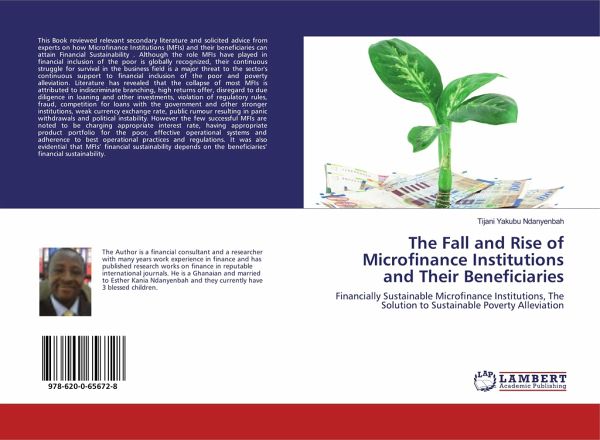
The Fall and Rise of Microfinance Institutions and Their Beneficiaries
Financially Sustainable Microfinance Institutions, The Solution to Sustainable Poverty Alleviation
Versandkostenfrei!
Versandfertig in 6-10 Tagen
27,99 €
inkl. MwSt.

PAYBACK Punkte
14 °P sammeln!
This Book reviewed relevant secondary literature and solicited advice from experts on how Microfinance Institutions (MFIs) and their beneficiaries can attain Financial Sustainability . Although the role MFIs have played in financial inclusion of the poor is globally recognized, their continuous struggle for survival in the business field is a major threat to the sector's continuous support to financial inclusion of the poor and poverty alleviation. Literature has revealed that the collapse of most MFIs is attributed to indiscriminate branching, high returns offer, disregard to due diligence in...
This Book reviewed relevant secondary literature and solicited advice from experts on how Microfinance Institutions (MFIs) and their beneficiaries can attain Financial Sustainability . Although the role MFIs have played in financial inclusion of the poor is globally recognized, their continuous struggle for survival in the business field is a major threat to the sector's continuous support to financial inclusion of the poor and poverty alleviation. Literature has revealed that the collapse of most MFIs is attributed to indiscriminate branching, high returns offer, disregard to due diligence in loaning and other investments, violation of regulatory rules, fraud, competition for loans with the government and other stronger institutions, weak currency exchange rate, public rumour resulting in panic withdrawals and political instability. However the few successful MFIs are noted to be charging appropriate interest rate, having appropriate product portfolio for the poor, effective operational systems and adherence to best operational practices and regulations. It was also evidential that MFIs' financial sustainability depends on the beneficiaries' financial sustainability.



